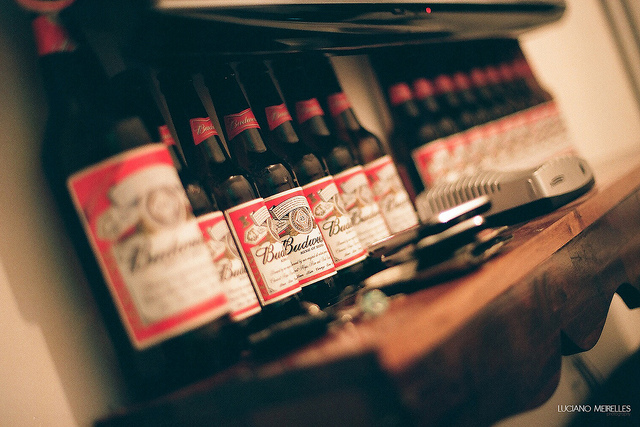In totally unsurprising news, Budweiser’s parent company, AB InBev, is under investigation by U.S. anti-trust regulators. We recently reported on the Department of Justice’s investigation into the claims that AB InBev illegally pressures its distributors to sever ties with smaller beer companies and only distribute AB InBev products. In our blog post we noted that the their alleged illegal activities are one thing, but it’s nothing compared to their legal incentive packages offered up to distributors who are aligned with them.
In late 2015, the Wall Street Journal reported that AB InBev unveiled their new incentive program for distributors in their network. They already own 17 U.S. distributors, who only carry their brands, but to the other 500, they offered a lucrative marketing package which encourages these distributors to almost exclusively carry their brands.
Basically, the perks are this: if distributors’ sales volumes are 95% made up of Ab InBev brands then they would be eligible to have half of their marketing costs paid for by the beer giant. The funny thing is that distributors who carry any AB InBev brands are already contractually bound to spend a specific amount on marketing for those brands, from Goose Island to Budweiser to 10 Barrel Brewing and usually includes things like retail promotion and displays costs. Now, if distributors carry 98% of their brands, AB InBev will cover 75% of that cost, up to $1.5 million. They estimate that distributors who participate in the program will receive approximately $200,000 in benefits for taking part and having AB InBev beers account for 98% of their inventory. Now that AB InBev has a bevy of craft beer breweries in their stable, they can offer this incentive to more distributors who before insisted on craft beer making up part of their inventory.
So what’s the real issue here? AB InBev says that they are playing by the rules and Reuters reported that their spokesperson had this to say about the incentive program,
“Our voluntary incentive program clearly does not prevent or inhibit other brands from getting to market,” and that the program is a “reflection of just how competitive the U.S. beer industry has become.”
According to anti-trust insiders the issue isn’t that they have created incentives for their distributors, the issue is how the program is structured. In fact, the program seems to be structured in a way that instead of giving an incentive to promote the Budweiser brands, it gives incentives to suppress the sale of other brands. This is the crux of the whole investigation. Since the rewards are set up to kick in when a certain percentage of all beers carried are AB InBev, that means the distributor would have to carry less of the other beer brands to get the reward. If they had set up the program to only kick in when distributors reached a certain dollar amount sold or number of kegs sold, they wouldn’t be facing this probe from anti-trust regulators.
Furthermore, Reuters reported that Budweiser has contractual requirements where, “A distributor that would want to promote a craft beer would be also required to run an equal promotion for Budweiser, which becomes prohibitively expensive,”
With the takeover of SABMiller but AB InBev set to happen later this month there is some possibly good news for independent brewers. Insiders have said the merger approval will include limits on the number of distributers that AB InBev could own going forward. Although this doesn’t help the small breweries effected by their questionable incentive program, it does show that U.S. regulators understand that one giant company controlling all avenues of the beer industry would not healthy for the diversity and overall health of the industry.
What do you think? Is this fair play in the big game we call capitalism or is AB InBev once again trying to get ahead by choking out the little guys?
Anna Brigham
6/3/16


